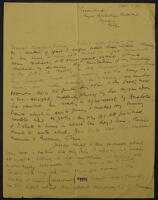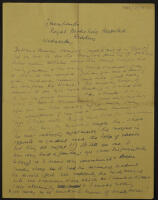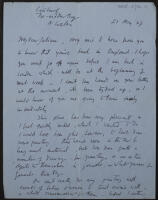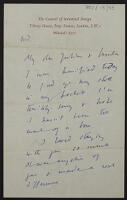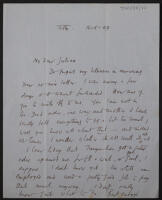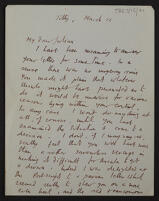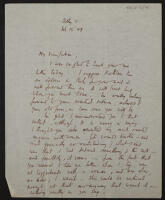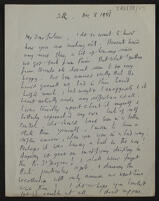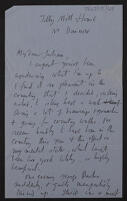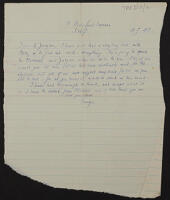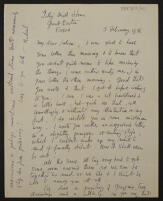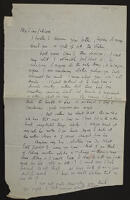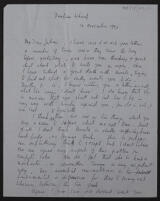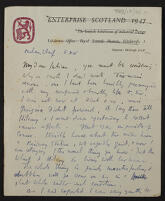Re her father-in-law John Marshall of Pontefract.
Letters, drafts, and copy-letters, largely relating to Huia Onslow's role as Secretary of the Soldiers and Sailor's Families Association, London North West District, particularly the numerous donations to the Anaesthetics Emergency Fund from New Zealand. Correspondents include: Elizabeth A. Sharp, the other Secretary of the Fund: George Frederick Copus of the New Zealand High Commission: William Edward Collins, doctor, on board the New Zealand Hospital Ship 'Maheno' (one letter encloses a printed diet table for a hospital ship or carrier); Duncan Flockhart & Co., Manufacturing Chemists.
Typescript thesis for M.A. (London)
Zonder titelField surveys, ground plan and elevation of a dam on the floodplain of the Wadi el-Me, accompanied by a photocopy. Bradfield notes "In order of descent, 5."
Small self-portrait sketch after postscript.
Small self-portrait sketch before signature.
Note on f. 1r: 'The College feels that it will be a matter of great historical interest in after times to have a record of the names, ranks, & home-addresses of those U.S.A. and Dominion Officers who are its guests during the war. Visitors are therefore requested to enter these (& any other particulars which they may care to record) in this book, together with the date of their visit'.
Note on f. 2 r. 'This book was bought, on the instructions of the College Council... on November 7th, 1942, & placed in the rooms at the north end of the Master's Lodge which were set aside as bedrooms for U.S.A. & Dominion Officers staying in College during the war. Before it was institute three officers had stayed in these rooms. As they had no opportunity to enter their names in the book, they have been entered by the Deputy Junior Bursar'. These three names then follow.
The rest of the book is filled in by the officers themselves; as well as dates of stay, names, rank, and addresses, places of education are often recorded; brief comments of appreciation of Trinity and Cambridge are often added. There is a poem by J. P. Clemenceau Le Clercq, 'A Ballade of Thanks to Trinity College', dated 9-10 Nov. 1944, on ff. 46-47
'Appendix to Cromwell's Letters & Speeches' in gold lettering on spine. Inscription on second front endpaper: 'To E. Fitzgerald Esq with kind remembrances. T. Carlyle. Chelsea, 14 Nov[embe]r 1849'.
Extensive pencil annotations and corrections in FitzGerald's hand made to the printed text of 'The Squire Papers'.
Zonder titelChelsea. - Originally enclosing a letter from Squire, describing the burning of the 'Cromwell letters'; comparatively little use now for FitzGerald to call on Squire, but Carlyle still wishes he would. Dawson Turner has already tried to see Squire's material, but without success.
The original plan by Alan Wells done in July 1950 and a photocopy of the plan with notes by R. M. Bradfield.
Printed map with notes on the map and on the verso by R. M. Bradfield. On the map, Bradfield notes that it is "almost certainly (from its alignment), in Wadi el-Me."

